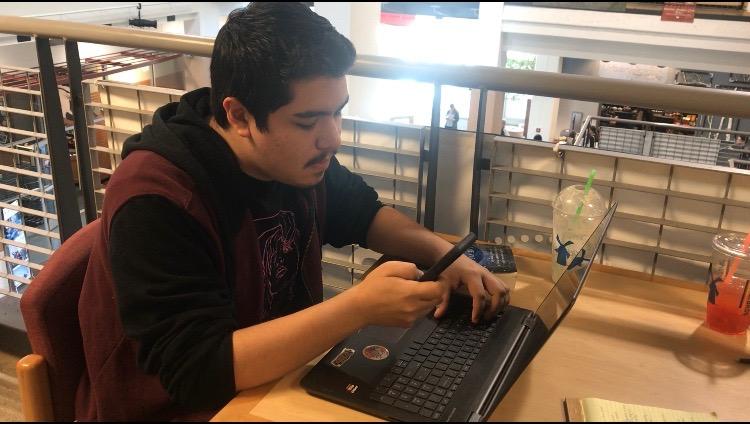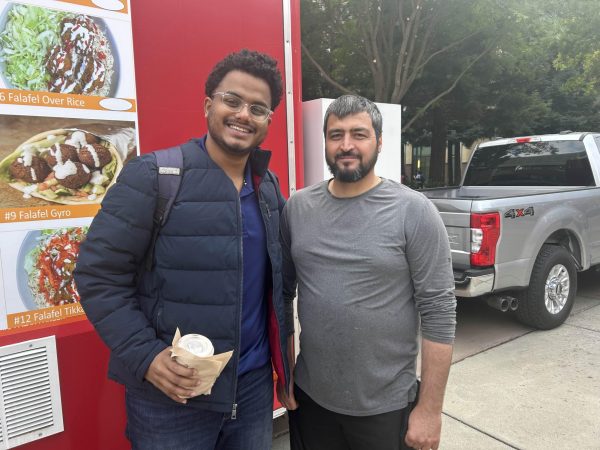Study smart, avoid midterm anxiety
While doing his homework, Fernando Salas started getting distracted and picked up his phone. Photo credit: Karen Limones
Many students struggle with juggling day to day responsibilities, whether it be school, work or extracurricular activities.
With a heavy work load, students often find themselves experiencing anxiety or stress which affects their grades.
When students’ lives are being negatively impacted, they turn to distractions, like social media or video games, as a way to escape. In order for students to get back on track, they must be willing to change their habits for the better.
If you want better grades, it’s time develop more effective study habits. Here are some tips to help you find the most effective way to study.
1. Exercise Before Rushing Into Your Work
Do you ever rush to get home or to the library immediately after class? A good way to improve scores is to exercise before you study, according to Point Sports Health. It improves attention span, speed of processing and the ability to perform cognitive tasks.
2. Listen to Some Tunes
For some students, listening to music before or during a study session is the best way to improve memorization and retention skills. According to Mind the Science Gap, studies have shown that listening to instrumental music while studying can be beneficial as it can improve attention and memory.
“For me, I study with music and flashcards,” said Channel Gibson, a Chico State student and biology major. “I feel it helps me retain information better.”
3. Take Breaks
When working on something for a long time, students tend to lose track on what their main focus is and may daydream, pick up their phone or start searching the web.
This is a perfect moment for a study break. Consider taking a walk or exercising. Whatever you choose to do, your mind should be ready to focus by the time you finish.
Studies show that a quick break from a task can improve a person’s ability to focus for prolonged periods of time, according to PsychCentral.
“I think it’s important to be well rested and to limit distractions,” said Carolina Perez, a Chico State student majoring in child development. “Procrastination is inevitable and a way to stay on task is by taking breaks.”
4. Don’t Cram for Tests!
The best way to retain information is to study early and not wait until the night before an exam. Students should review information over the course of a few days to improve their ability to remember on the day of the test, according to UCLA researchers.
It may seem intimidating at first, but the best way to adopt good study habits is to set a daily routine and find a study style that works for you.
Karen Limones can be reached at opinioneditor@theorion.com or @limoneska on Twitter.











